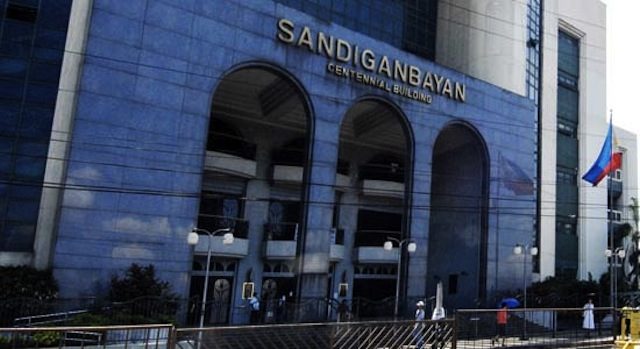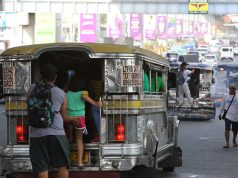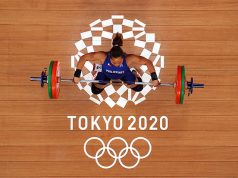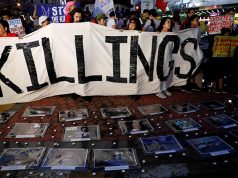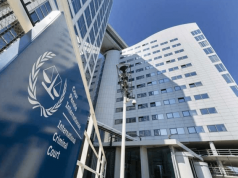MANILA – The Philippines dropped 10 spots globally and languished in the lower third of the Asia-Pacific list in an annual report of businessmen’s corruption perception that tagged the country “among the worst” in terms of dealing with those who “dare to challenge the status quo.”
The Corruption Perceptions Index 2017, which Transparency International released on Thursday, showed the Philippines dropping in rank to 111th out of 180 countries and territories from 101stout of 176 on the 2016 list.
In Asia and the Pacific, the Philippines placed 21st among 31 countries and territories.
After keeping a score of 35 from 2015 to 2016, on a 0-100 scale in which zero denotes a country is “highly corrupt” and 100 means it is “very clean,” the Philippines slipped to 34 in 2017. It was the country’s lowest score in five years, matching its grade in 2012.
The Philippines’ score was also below the 44.39 and 43.07 regional and global averages, respectively.
Within Southeast Asia, the Philippines was outdone by Singapore (which ranked sixth globally with a score of 84) Brunei Darussalam (which placed 32nd globally with a score of 62), Malaysia (62nd, 47), Timor-Leste (91st, 38), Indonesia (96th, 37), Thailand (also placing 96th with a score of 37) and Vietnam (107th, 35).
Faring worse in Southeast Asia were Myanmar (which ranked 130th with a score of 30), Laos (135th, 29) and Cambodia (which placed 161st with a score of 21).
Among others also in Asia and the Pacific, Japan placed 20th globally with a score of 73; South Korea ranked 51st with a score of 54; China, 77th with 41 and India, 81st with 40.
‘AMONG THE WORST OFFENDERS’
In brief comments on select economies covered by the latest survey, Transparency International noted that “the results from the 2017 index also show that corruption in many countries is still strong.”
“Often, when individuals dare to challenge the status quo, they suffer the consequences. In some countries across the region, journalists, activists, opposition leaders and even staff of law enforcement or watchdog agencies are threatened, and in the worst cases, even murdered,” the report read.
“Philippines, India and the Maldives are among the worst regional offenders in this respect. These countries score high for corruption and have fewer press freedoms and higher numbers of journalist deaths.”
Sought for comment, Chief Presidential Legal Counsel Salvador S. Panelo dismissed Transparency International’s (TI) findings, telling reporters in Malacañan Palace: “Fake news ‘yan,” while Dante L. Jimenez, Volunteer Against Crime and Corruption chairman who takes his post on March 6 as head of the newly formed Presidential Anti-Corruption Commission, said in a telephone interview: “I think that may be true, because there are still many agencies that have been tolerating corruption.”
“That’s why the president would always emphasize to these agencies to stop corruption. So we have to do something about this,” Mr. Jimenez said, adding that the commission that he is about to head “will craft strategies because the Duterte administration has only more than four years until he ends his term.”
“But of course, personally, what is important there is to strengthen the judicial system. We have to bring back the death penalty for plunderers. Unless we bring back these heavier penalties for plunderers, nothing will happen.”
The head of the European Chamber of Commerce of the Philippines (ECCP) expressed concern with this development when asked for his reaction.
“As a chamber that continues to promote the Philippines as an attractive foreign investment destination to potential investors in Europe and around the region, this new report is certainly worrying and also makes our job more challenging,” ECCP President Guenter Taus said in an e-mail.
“What we suggest is to create an effective enforcement mechanism for the Anti-Graft and Corrupt Practices Act and this should certainly serve as a good starting to point in beginning to address these issues. We have long been supportive of legislative and administrative measures that will address corruption in the private sector. Besides the Integrity Initiative, we are willing to assist the government in establishing an effective enforcement mechanism that will ensure that the Anti-Graft and Corrupt Practices Act is not selective of the person involved.”
John D. Forbes, senior adviser of the American Chamber of Commerce of the Philippines, said in a mobile phone message that while he had yet to read the latest report, “when developed country investors look at ASEAN they compare the ASEAN-6 and see Singapore and Malaysia as less corrupt and the Philippines trending upward into a cluster with Indonesia, Thailand, and Vietnam.”
“In another major index of the WEF in 2010, corruption was the number one-concern of business; by 2017 it was the number-three concern after red tape and poor infrastructure,” Mr. Forbes said, referring to the World Economic Forum.
“Philippine investors have been choosing to locate in PEZA zones because they have a great reputation for being corruption-free,” he added in reference to the Philippine Economic Zone Authority.
For Makati Business Club Executive Director Peter Angelo V. Perfecto, “[t]he latest TI rankings should help government recalibrate its anti-corruption efforts and programs.”
“One possible way forward is to partner with the private sector-led Integrity Initiative and, as a first step, issue an executive order that will provide all government agencies a framework for them to partner with private sector in jointly organizing projects and programs for integrity,” Mr. Perfecto said in a separate text message.
“A public-private partnership for integrity and anti-corruption could look deeper into the latest TI rankings to better analyze the index and jointly pursue a program that will help lift the country back up in the rankings.”
In order to improve scores across Asia and the Pacific, Transparency International prescribed: putting in place laws and institutions that will prevent corruption from happening in the first place, reducing impunity for the corrupt, improving space for civil society to speak out as well as improving integrity and values.
Noting that the latest survey “shows high corruption burden in more than two-thirds of countries”, Transparency International said “[t]his year’s Corruption Perceptions Index highlights that the majority of countries are making little or no progress in ending corruption, while further analysis shows journalists and activists in corrupt countries risking their lives every day in an effort to speak out.”
“Further analysis of the results indicates that countries with the least protection for press and nongovernment organizations also tend to have the worst rates of corruption,” it said.
“Every week at least one journalist is killed in a country that is highly corrupt.” — with inputs fromArjay L. Balinbin, Christine Joyce S. Castañeda and Mark T. Amoguis

